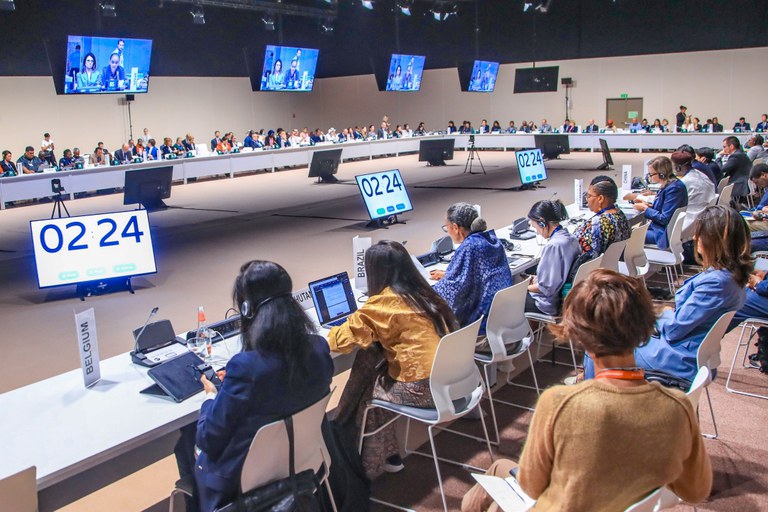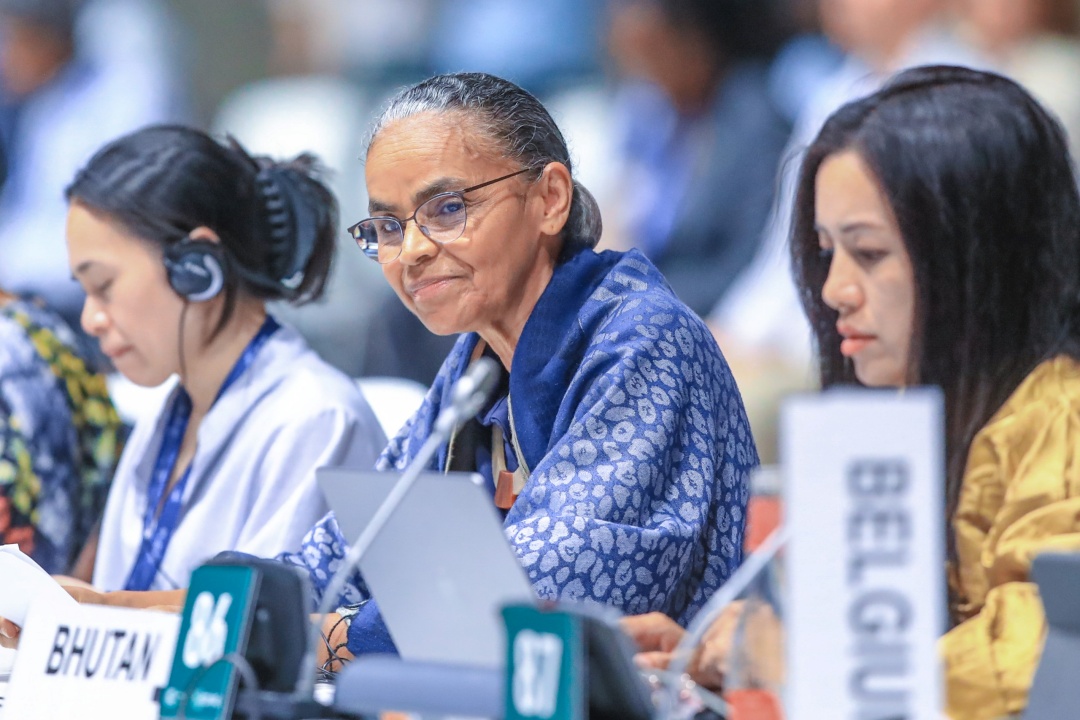Notícias
COP 28
"Taking our foot off the accelerator of fossil fuels is unavoidable," affirms Marina Silva at COP28

Minister Marina Silva (Environment and Climate Change) during an event with authorities from dozens of countries at COP 28 in Dubai. Photo: Estevam/Audiovisual/PR
Minister Marina Silva affirmed on Saturday (9/12), in a speech at COP28, that it is urgent to decelerate investments and the use of fossil fuels, and that it is everyone's effort, but that developed countries must lead this process. "If, on the one hand, there is a clear need for all countries to put their foot on the accelerator of renewable energies, on the other hand, we need to make an urgent and simultaneous effort by producer and consumer countries to take our foot off the accelerator of fossil fuels," stated the minister, who heads the Brazilian delegation.
If, on the one hand, there is a clear need for all countries to put their foot on the accelerator of renewable energies, on the other hand, we need to make an urgent and simultaneous effort by producer and consumer countries to take their foot off the accelerator of fossil fuels"
Marina Silva, Minister of the Environment and Climate Change
In an inter-ministerial panel on climate ambition, Marina reinforced the request for "urgent decarbonization" made by President Lula on the first day of the conference. It is necessary, she said, to "eliminate our economies dependence on fossil fuels as quickly as possible".
The effort for the transition must be collective, Marina argued, but the developed countries have a responsibility to lead it. To coordinate the process, she defended the creation of a negotiating and debating mechanism within the United Nations Framework Convention on Climate Change (UNFCCC).
"Reaching the objective of 1.5°C imposes unseen challenges, which require an equally unseen collective response, accompanied by unprecedented mobilization, in speed and scale, of the means of implementation for climate action in developing countries," affirmed the minister. "The years up to 2030 are the last chance to confront climate change," said Marina. According to her, unity is needed to "bring us to a level of civilization that is more just, supportive and secure".

- Marina Silva: 'Only common and firm decisions will lead us to the desirable and inevitable change of route'. Photo: Estevam/Audiovisual/PR
LAST OPPORTUNITY - Collective action, said the minister, is capable of influencing countries that have best conditions to face the climate emergency to create an agreement to accelerate financial and technological resources to speed up mitigation and adaptation. According to Marina, "there is no longer any need to talk about isolated solutions".
"The decade 2021-2030 represents the last opportunity to confront climate change and ensure a safer future for humanity. The warning signal is ringing continuously," she stated.
GAPS AND SOLUTIONS - The success of COP30, which Brazil will hold in Belém, Pará, in 2025, will depend on the success of Global Stocktake in Dubai. This is an inventory of the advances made since the 2015 Paris Agreement, with the results of climate actions and the identification of gaps and possible solution
The balance must be aligned with 1.5°C, the limit for avoiding a catastrophe, in all its dimensions, declared the minister. These include pre-2030 actions, recommendations for future climate targets and a global adaptation objective in line with the real risks, particularly for the most vulnerable populations. "We will all have to make concessions. But these concessions cannot compromise the 1.5°C commitment. We need to understand them as a demonstration of our commitment to change, avoiding the chaos that is already coming."